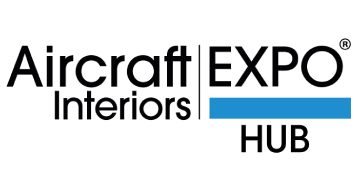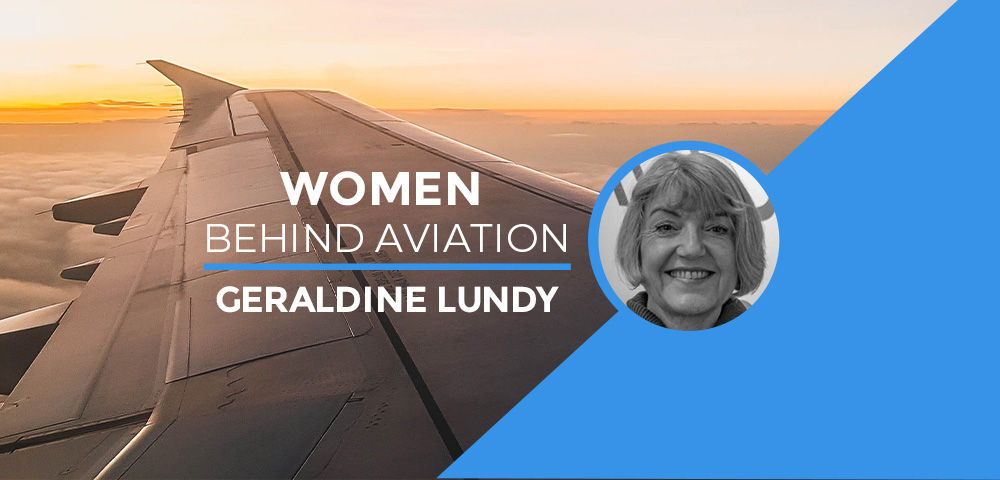The Aircraft Interiors Expo (AIX) team sat down with Geraldine Lundy, Director of Accessible Travel Consultancy and former Passenger Accessibility Manager at Virgin Atlantic, as part of our Women in the Aviation series.
This series of interviews aims to shine a spotlight on notable women in the industry and the diverse career opportunities in the sector.
Geraldine, how long have you worked in the aviation industry?
“I’ve worked in the aviation industry for just over twenty-one years.”
How did you get into the industry?
“My background is in chemistry and when I returned to work as a newly single mother, I wanted a brief change from the fume cupboard. I thought a couple of years learning new skills would be interesting before I returned to science.”
What is it about working in the aviation industry that appeals to you?
“The fact that those two years morphed into more than two decades demonstrates how much I love this industry. The most exciting aspects for me are that things are continually evolving and developing, particularly in the area I’m passionate about – accessibility.
When I first started at Virgin, the word ‘accessibility’ was hardly used and the industry used to talk about disability and ‘handicapped’ lavatories or seats. Thankfully things have evolved since those days and now accessibility is more firmly embedded in the industry and in people’s attitudes.
“The language and attitude in the workplace have improved immensely over the decades.”
Geraldine Lundy
For me, I hugely relish the challenge of producing the best possible outcome for all stakeholders concerned – be they our passengers, employees or the particular company we work for, as well as airports, third party providers, aircraft manufacturers, seat manufacturers, industry bodies and regulators. Sometimes it’s not possible to achieve everything but there is great satisfaction in doing the best you can and striking a suitable compromise.
Also, it’s important to note that life in aviation is never boring. You may have a game plan for your working day or week but it’s always interesting to review what actually happened. Having to adapt on a daily and sometimes hourly basis can be exhausting but makes for an interesting working environment.”
As a woman, how do you find working in such a male-dominated industry?
“I enjoy it and it has changed dramatically over the years, although there are still aspects that could be improved. I love the mix of ideas and opinions you get from working with colleagues of all genders and gender identifications.”
Have you encountered any gender discrimination in your career?
“Yes, at the start of my career I discovered I was doing a comparable job to a male colleague for considerably less remuneration. I took it further internally but wasn’t listened to. I think the people involved initially thought that if they stalled, I wouldn’t pursue the issue.
However, when I feel I am in the right about something I do like to see things through to the end, so I gathered all the supporting evidence and escalated things through the company. Fortunately, it came to the attention of a senior female manager who resolved the situation before I had to take things externally. I know this situation wouldn’t happen today.
Thankfully, the language and attitude in the workplace have improved immensely over the decades. I am not aware now of any of the derogatory comments I and my female colleagues used to hear many years ago.”
As a female senior leader, why do you think it’s important for companies to address the gender gap?
“I believe it is vital for any company or organisation to be truly inclusive. It’s the right thing to do within society but also the right thing to do for your business. If you are truly inclusive (by which I mean attempting to address all gaps – age, gender and gender identity, ethnicity, employees with differing accessibility requirements etc in all areas – pay, attitude, career opportunities, learning opportunities, etc/) then you’ll have a happier workforce with a wider skill set.
If you have more engaged employees your business will tend to thrive (assuming your business model isn’t flawed!).”
What do you believe has been the key to your success?
“I like to make a positive impact and strive to do a good job whatever I take on. I also like to see things through to completion. If I encounter an obstacle, I like to explore whether there is another way to overcome it. I’ll also try to be as polite as possible whatever I’m doing.”
What characteristics do you believe women need to survive in the aviation industry?
“I hope it’s not a case of survival these days. I hope, instead, it’s more a case of opportunities to achieve and flourish. Also, I’m not sure it’s any different to most other industries these days – work hard, be prepared to be flexible and be honest.”
In your opinion, what is the biggest obstacle to women succeeding in the workplace?
“I think for most people, whatever gender or background, the biggest obstacle will be themselves. Firstly, do they know themselves well enough to be in the right job for them for the right reasons? Also, what is their definition of success – is it money, level of management, number of direct reports or job satisfaction, for example? And then, do they have the belief in themselves to pursue whatever they want to do?”
What would you say has been your career highlight to date?
“I’ve been lucky enough to have so many it’s hard to choose! On a customer level, I love the fact that we’ve enabled so many people to travel when others have said no. This has opened the world up for some, and for others, it has given them treasured memories to cherish when their loved ones are no longer alive.
On a company level, to have been chosen to fly the Invictus team to Florida was a great accolade for everyone who works at Virgin Atlantic.
I also recently acted as Master of Ceremonies at the inaugural IATA Global Accessibility Symposium, which was a wonderful personal highlight. It was a great privilege to have been asked to do this and fantastic to see how far the concept of accessible aviation has come.
I feel so proud to have been one of the group of people who have been raising awareness of this around the world so much so that our industry body has now got this firmly on its agenda.”
What’s the best piece of advice you’ve ever been given?
“The best indicator of someone’s future behaviour is their past behaviour.”
What advice would you give to female professionals interested in a career in aviation?
“Just go for it. There is such a huge variety of roles and opportunities out there for the taking. Most companies encourage mobility and you will have the ability to develop your career and find the role that you enjoy most. Oh and remember, airlines are 24/7 365 days a year – you will work hard, so ensure you have a toolkit of resilient support.”
What do you believe is the biggest challenge facing the aviation industry?
“With so many agencies declaring a climate emergency and many public demonstrations against climate change, there is a lot of negative press concerning aviation’s contribution to greenhouse emissions. Many people are choosing not to fly and some governments may consider restricting air travel growth or increasing aviation taxes. Some countries have allegedly experienced a decrease in passenger numbers. It will be interesting to see how this situation develops. At the moment, I’m uncertain of the impact it will have.
Meanwhile, I believe there are many positive steps the industry can take in line with IATA’s policy suggestions for climate change. IATA has outlined a set of ambitious targets to mitigate CO2 emissions from air transport, including an average improvement in fuel efficiency of 1.5% per year to 2020; a cap on net aviation CO2 emissions from 2020; and a reduction in net aviation emissions of 50% b 2050, relative to 2005 levels.
“Life in aviation is never boring.”
Geraldine Lundy
This multi-faceted approach is underpinned by a four-pillar strategy, demonstrating IATA’s commitment to be part of the solution. More information can be found here.
I also think it is important to get the positive messages out regarding what the industry contributes to the world – jobs, tourism, economic growth, medical treatment, time-critical transportation (organs), world trade to name a few.
Broadening this out, I think the industry could do more to champion the benefits it brings and what initiatives they are working on at every level – inclusion, accessibility, sustainability, responsibility. This could mitigate some of the negative attention.”
What do you believe has been the biggest development in air travel over the past 25 years?
“I’m biased but today, more and more people with disabilities have access to air travel in a safer and more comfortable way than they had 25 years ago. This has been facilitated by improvements within the industry and the raft of accessibility legislation that has been introduced in the past 25 years protecting the rights of people with disabilities.”
Who has been your biggest advocate/mentor in the workplace and why?
“A lady called Gilly Golesworthy. Gilly is an independent advisor to the aviation industry focusing on accessibility. She has taught me (and others) over the years to move away from scheduling/managing disabled passengers to assisting/facilitating customers with disabilities. It’s a subtle mind shift which delivers a huge impact in attitude and approaches to what we need to do in this area.”
About Geraldine Lundy
Geraldine Lundy has accumulated more than 20 years experience as part of the Medical Services team at Virgin Atlantic; seven of which she has had the privilege to be the airline’s Passenger Accessibility Manager – championing universal design throughout the passenger experience.
Her role at Virgin had two key foci – to enable a customer with a disability to have a safe and comfortable flight and to ensure that the airline is compliant with all disability-related aviation regulations/legislation.
Passionate about accessibility, in August 2019, she launched the Accessible Travel Consultancy, to provide expert advice to companies and people with disabilities to facilitate and enhance accessible travel across the aviation industry and beyond. Geraldine continues to work with Virgin Atlantic in a consultative role and sits on a variety of industry bodies working to improve access to aviation.

